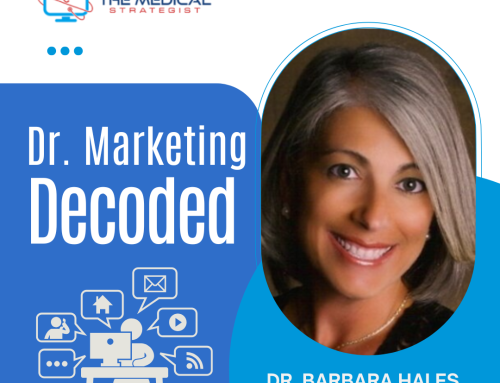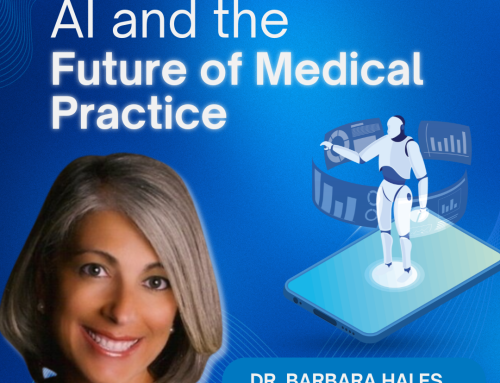Podcast: Play in new window | Download
Subscribe: RSS
In this episode, Barbara and Andrea discuss:
- The difference between trademark and copyright
- Andrea’s program called Legalpreneur
- The difference between an LLC and a S Corporation
Key Takeaways:
- The difference between Andrea being an attorney and online services that provide templates is that Andrea is an actual attorney and has a physical office
- When you have a LLC, it relieves you of liability for debts of the company
- It is important for business owners to separate themselves as to protect their personal interest
“With the membership, you get unlimited access to emails” — Andrea Sager
Transcription
017 Andrea Sager-Attorney in your Pocket
Barbara Hales: Hey, this is your host, Dr. Barbara Hales. I have such an interesting episode for you today. I’m sitting here with Andrea Sager, who is an attorney.
She spent seven months at a large law firm but quickly found out that big law was not the place for her. She was told that small businesses are not quality clients, and she just felt that’s not true. This was a defining moment for her.
She now represents small businesses such as yourself at affordable legal services. Her feeling is get peace of mind in regards to legal issues in your business, and not have to spend a fortune on legal services, but still have all access to an attorney. She has a very interesting program which we’ll be discussing later called, The Legalpreneur membership.
Welcome today, Andrea.
Andrea Sager: Hi. Thank you so much for having me. I’m so excited about this.
Barbara Hales: There are so many legal questions that people just don’t understand when they’re not in the legal profession. Tell me, what is the difference between a trademark and a copyright?
Andrea Sager: Great question to get started. Trademarks and copyrights, they are both intellectual property, both cover two very different aspects of your brand.
Number one, a trademark identifies everything that identifies your brand. Think of branding when it comes to trademarks. The big three are your brand name, your logo, and your slogan.
Those aren’t the only things that can be trademarked, but those are the big three that businesses really start with. That’s where they get started.
Think about your brand name, your logo, and your slogan. Other things are your podcast name. If you have an online course, that name. I mean it’s a myriad of things, but think about branding what identifies your brand and that can be trademarked.
On the other hand, with copyrights, this is all of your content. As far as content goes, this podcast content within it, that is protected by copyright.
Your blog posts, your photos, your videos, it’s all the content that you’re producing to go within your brand. The easy way to distinguish the two is, trademarks equal branding and copyrights equal content.
Barbara Hales: That is so good to know. Doctors are really the worst when it comes to realizing that they need to protect their intellectual property. Does a trademark need to be renewed like a copyright? And if so, after how many years?
Andrea Sager: Trademarks, they do get renewed. Copyrights really don’t get renewed. Copyrights are as long lasting as the life of the author, plus 75 years.
On the other hand, the first renewal for a trademark is between five and six years after registration. After that initial renewal, then it’s at the 10-year mark. After that renewal, it’s every 10 years.
It’s pretty much every 10 years except for the initial renewal, and that is at five to six years. Potentially a trademark can live on forever. A copyright, however, does not live on forever.
Barbara Hales: I see. What is the difference between your service as an attorney and an online entity that provides templates?
Andrea Sager: A lot of the online services that provide templates, or automate a lot of the business filings and legal services, the biggest difference is that I’m an actual attorney and I have an actual law firm.
On the other hand, those entities, they specifically state in the disclaimer that pretty much their base level of services, they’re not conducted by an attorney and they state that they are not a law firm.
Even though they kind of can mislead you into thinking that you are working with an attorney, it’s very important to know that you are not working with an attorney.
I mean you have to pay extra to get that service with that entity to get to the service of working with an attorney. By the time you end up paying for an attorney, it ends up being pretty much the same price as it would be working with me.
A lot of people get misled by the online entities that have templates and automate things. If you really want to work with an attorney, then you just need to reach out to a small business attorney, they’ll really help you out.
Barbara Hales: Well for sure they would be getting rid of all of the frustration that they would having to do a dual process.
Andrea Sager: Right. Yeah. I actually have a couple of clients who have come to me after working with a couple of the automated online entities, and working with the templates that they have.
I had one client who actually paid extra and work with an attorney to get a trademark filed and they never filed her trademark. Luckily, she got her money back, but she spent months thinking that her trademark had been filed and it hadn’t.
Barbara Hales: Oh my goodness. Tell me, what are the advantages of becoming an LLC?
Andrea Sager: When you have an LLC, going from a sole proprietor to an LLC, that’s a really big step and it’s very important because it relieves you of so much liability and it’s really a no brainer.
I get the question all the time, when should I become an LLC? It’s like the moment that you have a business, you need to eliminate your personal liability. By doing that you become an LLC. When you are an LLC, you are relieving yourself from liability for the debts of the company.
If you have a business loan or something, the company is indebted somehow. You are not personally liable for that debt. They can only recover what the business owns. That’s why it’s incredibly important to make sure you have that LLC.
People think that the LLC changes your tax status and it doesn’t. The LLC does nothing as far as taxes because it’s only a state entity. It’s not a federally recognized entity.
Once you become an LLC, you are still filing a schedule C on your personal tax return. The only time that changes is if you elect to be taxed as S Corp.
Barbara Hales: It’s crucial for physicians especially, and all professionals to take a good hard look at their businesses and make sure that they are protected from their personal accounts. What is the difference between an S Corp and a regular LLC?
Andrea Sager: The difference between an S Corp and an LLC, you can become an S Corp by … To be clear, the S Crop only has to do with your tax status.
When you’re an S Corp, you’re either an LLC or a C Corp, a C corporation. The S Corp allows you as the business owner to have your taxes to flow through the entity.
With a C Corp, generally the owner of the corporation is double taxed. You’re taxed on the income that you’re receiving from the company, and then you’re also being taxed on the profits, and what the business is making.
Once you’re an S Corp, it’s a flow through entity. That means the taxes flow through the company and you’re only taxed one time.
Barbara Hales: Thank you. At this point I would like to turn to the membership that you have created called, The Legalpreneur. I find this so interesting.
What you’ve actually done is created a program that gives everyone access to an attorney at a monthly rate, or a discounted for an annual rate, much less than they would if they went to a regular attorney. Could you tell us a little bit about this program?
Andrea Sager: Yeah, absolutely. The membership came about because I would have clients who’d come to me and they’d want to file a trademark and that would be it. They wouldn’t sign up for any of their services.
The way I work is, I work on a flat fee basis so I don’t charge hourly. There’s very few services that I charge hourly for. A trademark is a flat fee. We’d file the trademark, and then they would come to me for additional business questions.
A lot of these questions would be in an email. It would take me no time to answer. I didn’t want to bill somebody for answering those simple questions.
At the same all of those questions add up for me, and that adds up on my time. Trying to find the work around instead of having to bill everybody for little questions that they asked, I came up with the membership.
With the membership, you get unlimited access through email, so unlimited emails. You’re not charged extra for me responding to emails. Most attorneys they will charge you for reading the email, thinking about the email, and then responding to the email.
For me, you’re paying one flat fee, you get unlimited email response, you get up to 60 minutes every month in phone calls. Then you get 30 pages of document review every month.
I actually have a couple of doctors on the program. I review their intake forms, any disclaimers that they post in the office, or whatever they have, all of that is reviewed.
You also get an extra 15% off of any additional services that you need. If you need to file a trademark, if you need to file a copyright, send a cease and desist letter that is 15% off.
Once you’ve been a member for three months, you get a free IP audit. That’s basically where I go into your business and tell you exactly what can be protected with a trademark, a copyright. Basically, closing all those loopholes within your business.
Then at six months you get a free trademark search. This is required of anybody that wants a trademark. If you file with me, I do pretty much require you to run that trademark search. That’s completely free once you’ve been a member for six months.
After you’ve been a member for 12 months, you get three trademark applications half off. So instead of 15% off you get 50% off.
If you pay in full for the year, you get those 3, 6 and 12 months benefits immediately. You don’t have to wait. That program is $127 a month or $1397 for the year, so you get one month free.
Barbara Hales: Your program’s absolutely awesome. It’s so great to have an attorney in your pocket you know?
Andrea Sager: Yeah.
Barbara Hales: Saving money and [inaudible 00:11:03] this is all fantastic. Listeners out there, Andrea Sager has graciously offered to give discounts for everyone listening today, if they sign up for the program. How do they do that, Andrea?
Andrea Sager: Yeah. The discount is 10% off. 10% of whether they sign up for the monthly or the annual, they get 10% off, and they just have to use promo code Barbara.
Barbara Hales: What is the URL that they should type in to learn more about the program?
Andrea Sager: They can go to andreasager.com. There is a button right at the top of the page that says, click to learn more about the membership.
Barbara Hales: This has been really enlightening. Thank you so much for joining us on this episode today.
Andrea Sager: You are so welcome. I had a great time.
Barbara Hales: This has been Barbara Hales with Marketing Tips For Doctors. Until next time, see you then.
Get 10% off with promo code Barbara. Go to AndreaSager.com!
Connect with Barbara Hales:
Twitter: @DrBarbaraHales
Facebook: facebook.com/theMedicalStrategist
Business website:www.TheMedicalStrategist.com
Show website: www.MarketingTipsForDoctors.com
Email: Barbara@TheMedicalStrategist.com
Books:
- Content Copy Made Easy
- 14 Tactics to Triple Sales
- Power to the Patient: The Medical Strategist
YouTube: TheMedicalStrategist
LinkedIn: www.linkedin.com/in/barbarahales



